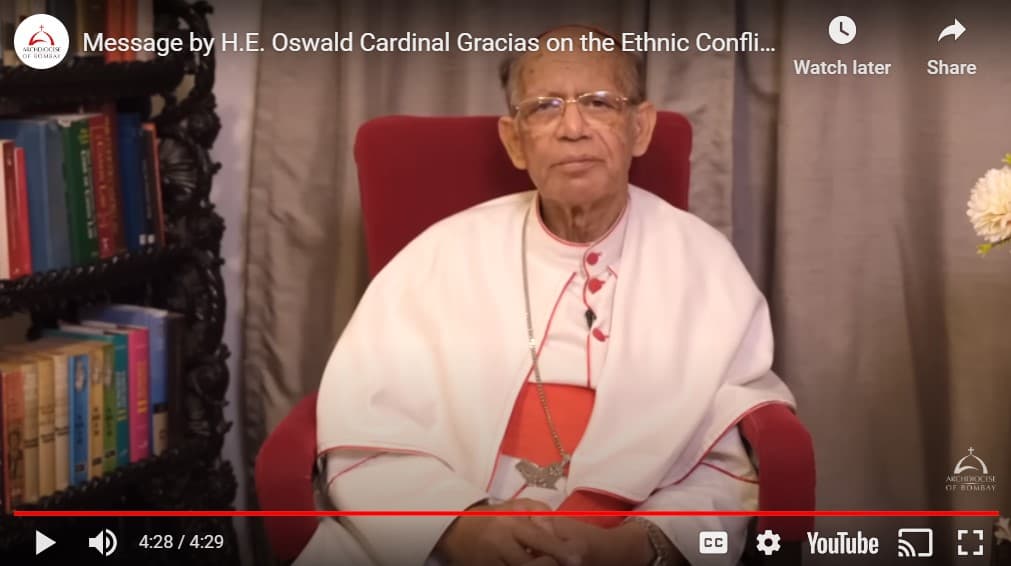MUMBAI – Despite charges from some Catholic leaders that an “ethnic cleansing of Christians” is underway in India’s northeastern state of Manipur, the country’s more prominent churchman has insisted that a “religious twist” should not be given to the conflict.
In a new video message, Cardinal Oswald Gracias of Mumbai said that riots currently underway in Manipur, India, do not represent a Hindu-Christian conflict but rather are the result of tribal tensions.
Gracias, a key ally of Pope Francis who’s been part of his Council of Cardinals since the body was created in 2013, used the video to call for a peaceful resolution of the differences between the two tribal communities involved.
“It has been given a religious twist, but this is not a religious conflict between two religions,” Gracias said in the video. “It is a tribal conflict, [with] two tribes that have historically been very hostile to each other.”
Gracias’ attempt to reframe the conflict comes after other Christian leaders had staged prayers and protest marches across the country on July 2 in response to ongoing violence in Manipur, which pits the largely Hindu Meitei ethnic group against the mostly Protestant Christian Kuki people.
Each group represents roughly forty percent of the state’s population of four million, but the Meitei enjoy the support of regional and national political forces dominated by the Hindu nationalist BJP party of Indian Prime Minister Narendra Modi.
Since the violence began on May 3, estimates are that some 55,000 displaced persons are now living in 300 refugee camps, though with larger numbers expelled from their homes and villages who haven’t moved to any formal settlements.
Over 5,000 structures, including churches and private Christian homes, have been burned, and some local observers claim that as many as 181 people have died and more than 300 have been wounded.
Earlier in July, Archbishop Dominic Lumon of Imphal, located in Manipur, suggested an anti-Christian subtext to the violence, comparing the situation to 2008 anti-Christian violence in the Kandhamal district of Odisha state.
Lumon said officials use “narratives like ‘war against drugs’ or ‘fight against illegal migrants from Myanmar’, [but] in the midst of this orchestrated propaganda, subtle attacks on Christianity seem to have found a clean and unsuspecting space.”
Archbishop Joseph Pamplany of Tellicherry, part of India’s Syro-Malabar Church in communion with Rome, was more explicit, charging that the violence in Manipur amounts to “ethnic cleansing of Christians” and challenging Modi to stop it.
“Honorable prime minister, we have to ask you this: Can you keep your hand on your chest and tell the suffering Christians of Manipur that there is no religious discrimination in this country?” Pamplany asked.
Gracias, however, argued against interpreting the carnage in religious terms, noting that both Hindu temples and Christian churches have been destroyed amid the fighting.
Gracias said that he had spoken with the President of the Catholic Bishops’ Conference of India to discuss the plans of the organization, including how to restore peace and how the church can contribute to the effort.
He also announced that a special collection will be taken up on August 13, with proceeds going to material relief efforts in Manipur.
“We must not now do anything that will worsen the situation,” Gracias said. “Efforts at building harmony and peace should continue. The Church should also come forward for this.”
“This is the need of the hour for Manipur, and for our country, to be able to live in peace and harmony,” he said.













